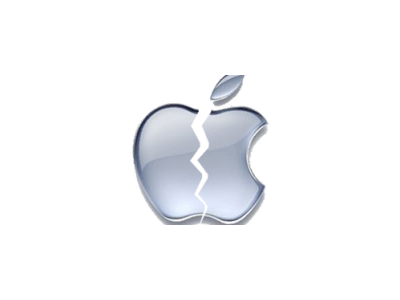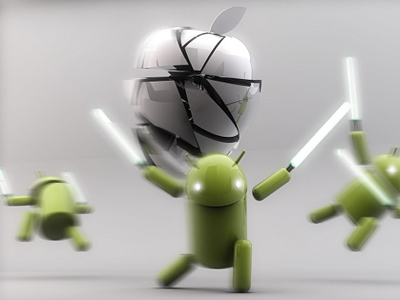Apple No Longer World's Most Valuable Company
Apple is no longer the world's most valuable company, with oil and gas company Exxon Mobil's market capitalization exceeding that of the iPhone maker's.
The former's shares further decreased by more than $11 to settle for a share price of $439.23, resulting in a market capitalization of $412.7 billion. With a 16-cent gain in Exxon Mobil's stock, the firm's market cap was propelled to $417.2 billion.
Apple had boasted a market value of approximately $623 billion back in the August of 2012, which is when pre-iPhone 5 launch hype was escalating; the firm's shares then exceeded $700.
Following Apple announcing its 2012 fourth quarter results, its stock declined by 12 percent, which cut $50 billion in its market capitalization. Although it sold 47.8 million iPhone units, analysts were expecting more than 50 million due to the iPhone 5.
Since the launch of the iPhone 4 and its successor, the iPhone 4S, Apple has enjoyed astronomical success. Its profits surmounted the entire PC industry, with the company later becoming the world's most valuable firm due to the hype of the iPhone 5. Due to its success, an Apple subsidiary was named the world's largest hedge fund; the company had over $100 billion in cash.
Analysts strongly tipped the iPhone 5 launch to make Apple the first company in history to have a market capitalization of $1 trillion. However, after the smartphone's launch, stock prices have been continuously declining.
After the iPad Mini and iPad 4's launch, it suffered its worst stock price decline in four years. When 2013 arrived, reports emerged of Apple having reduced component and screen orders by 50 percent for the iPhone 5 due to weakening demand, although CEO Tim Cook has downplayed the speculation, but didn't deny nor confirm it.
Get Tom's Hardware's best news and in-depth reviews, straight to your inbox.
Apple has also experienced the effects of Samsung's dominance in the market, as well as the performance of Google's Android platform.
Reports have suggested that a cheaper iPhone unit is in the offing, with a former CEO even stressing the significance of such a product. However, Apple responded by stating that it will never launch a cheap iPhone. It also defended the iPad Mini's premium price.
Apple co-founder Steve Wozniak even admitted that he's worried about the innovation at the company he helped form with Steve Jobs, which followed an analyst stating that the firm's creativity is clearly "sputtering".

Zak Islam is a freelance writer focusing on security, networking, and general computing. His work also appears at Digital Trends and Tom's Guide.
-
jdwii I like how they come up with reasons for why gas cost so much and then we hear this, Something needs to be doneReply -
JAYDEEJOHN The petro industry is very diverse, and also not a fad.Reply
Look into exactly everything Exxon does, how many employees etc -
vaughn2k When the first iPhone was launched here in our country 2008, I never bought one... until the launch of iPhone 5, still I did not bought one, to me its so damn expensive. And I never regret it for not buying one. So long Apple.Reply -
Daedalus12 As for apple, it's about damn time.Reply
As for oil, it's a pretty volatile industry. They may be doing great now, but that could easily not be the case in a years time. Reserves get eaten up, exploration is crazy expensive, etc. Profits during good times means the ability to weather the bad...and people can keep their jobs. -
wdmfiber "first company to have a market cap of 1 trillion"Reply
deja vu... I remember hearing that way back in 1999. Then it was Microsoft, it got to 616 billion.
I think it's going to many more years and a lot of inflation before a company hits that valuation. -
colson79 I just don't get the stock market when it comes to Apple. They beat expectations, had a record profit of 13 billion dollars for the quarter and the stock goes down.Reply

